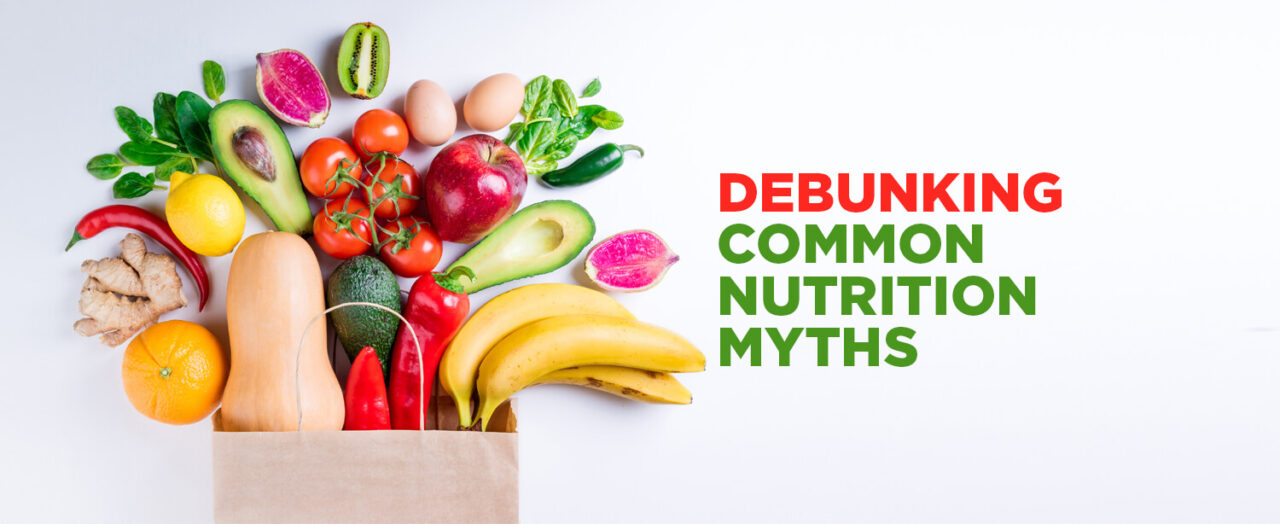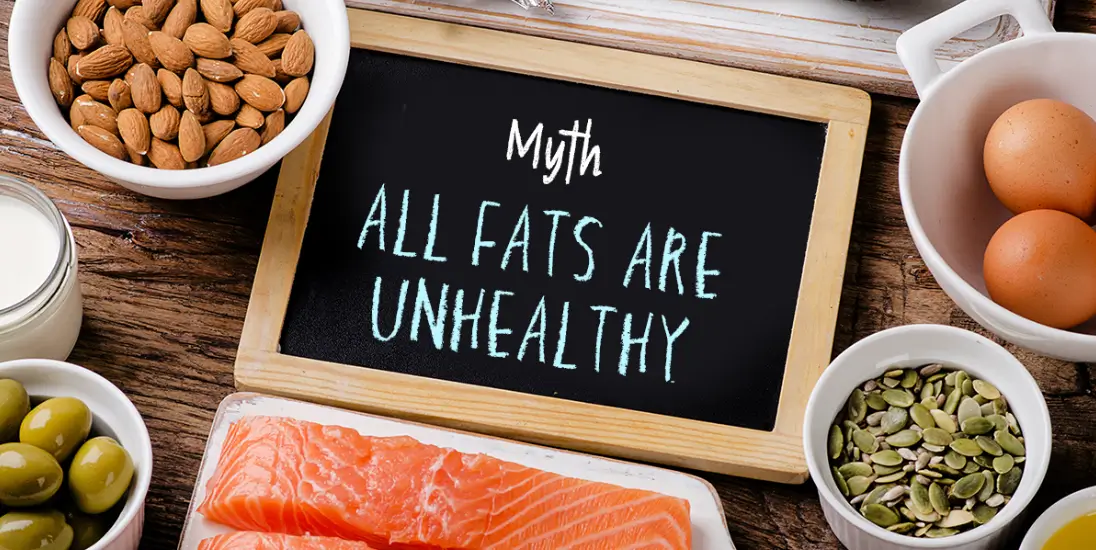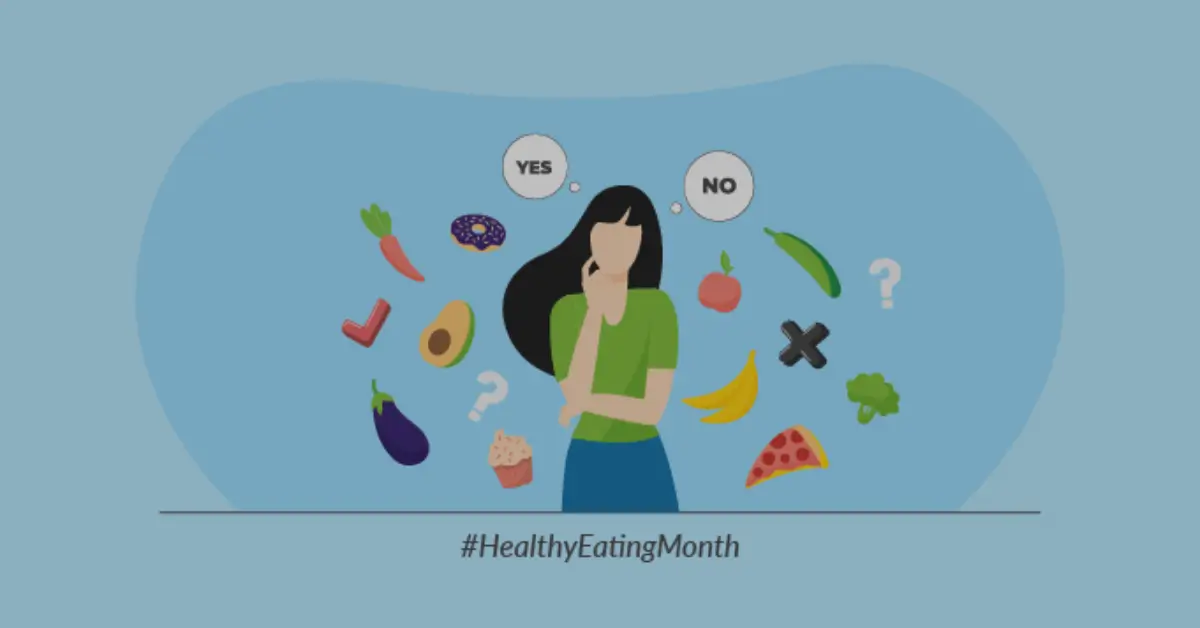When it comes to nutrition, it seems like everyone has an opinion. From fad diets to social media influencers, we’re bombarded with information – some accurate, some not so much.
It’s time to separate fact from fiction and debunk those pesky nutrition myths that just won’t go away.
In this article, we’ll dive deep into some of the most common nutrition myths and provide you with evidence-based facts to help you make informed decisions about your diet.
We’ll cover topics like calories, fats, carbs, and more, so you can finally ditch the confusion and embrace a healthier lifestyle.
Understanding Nutrition Myths
Let’s face it, the world of nutrition can be confusing and overwhelming. With so much conflicting information out there, it’s no wonder we sometimes fall for myths that sound too good to be true.
But fear not, my friends! We’re here to cut through the noise and get to the bottom of some of the most persistent nutrition myths.

Myth #1: Calories In, Calories Out – The Only Factor for Weight Loss
One of the most widely believed myths is that weight loss is solely determined by the “calories in, calories out” equation. While creating a calorie deficit is indeed crucial for shedding pounds, it’s not the only factor at play.
The truth is, that our bodies are complex systems, and weight management involves much more than just calorie counting. Variables like hormonal imbalances, health conditions, medications, genetics, and even stress levels can all impact our ability to lose or gain weight.

Moreover, the quality of the calories we consume matters just as much as the quantity. A diet rich in nutrient-dense, whole foods will provide better satiety and overall health benefits compared to a diet filled with processed, calorie-dense foods.
Myth #2: All Fats Are Unhealthy
For years, we’ve been led to believe that all fats are bad for us. However, this couldn’t be further from the truth. Fats are an essential part of a balanced diet and play crucial roles in our bodies, such as providing energy, aiding nutrient absorption, and supporting brain health.

The key is to distinguish between healthy and unhealthy fats. Monounsaturated and polyunsaturated fats, found in foods like avocados, nuts, olive oil, and fatty fish, are considered beneficial for our health.
On the other hand, saturated and trans fats, commonly found in processed foods and red meat, should be limited.
Myth #3: Breakfast Is the Most Important Meal of the Day
We’ve all heard the age-old saying, “Breakfast is the most important meal of the day.” But is it really? Recent research suggests that this may not be true for most adults.

While breakfast can be beneficial for some people, especially children and adolescents, the timing and specific foods consumed matter less than overall dietary patterns.
What’s more important is maintaining a consistent eating schedule and choosing nutrient-dense options throughout the day.
Is Honeycomb Cereal Good for You?
Myth #4: Snacking Is Always Bad for You
Many of us have been conditioned to believe that snacking is a no-no when it comes to maintaining a healthy diet. However, this is another myth that needs to be debunked.

Snacking can be beneficial when done right. The key is to choose nutrient-dense, whole-food options like fresh fruits, vegetables, nuts, or yogurt. These snacks can help curb cravings, stabilize blood sugar levels, and provide essential nutrients.
The Power of Plant-Based Proteins
The real culprit is mindless snacking on processed, high-calorie, and high-sugar foods, which can lead to weight gain and other health issues.
Myth #5: Fresh Produce Is Always Better Than Frozen
While fresh produce is often touted as the healthier option, this myth is not always accurate. In some cases, frozen fruits(freeze-dried candy) and vegetables can be just as nutritious, if not more so, than their fresh counterparts.
This is because frozen produce is typically frozen at peak ripeness, locking in its nutrient content. Fresh produce, on the other hand, can lose some of its nutrients during transportation and storage.

Additionally, frozen produce is often more convenient and can help reduce food waste, as you can use only what you need and store the rest for later.
The Ultimate Guide to Meal Prepping for Busy Weekdays
Separating Fact from Fiction
Reliable Sources for Nutrition Information
Now that we’ve debunked some of the most common nutrition myths, you might be wondering where you can find reliable, evidence-based information. Here are some trusted sources to consider:
- Government Health Organizations: Websites like the Centers for Disease Control and Prevention (CDC), the National Institutes of Health (NIH), and the U.S. Department of Agriculture (USDA) are excellent sources of evidence-based nutrition information.
- Registered Dietitians and Nutritionists: Seek advice from licensed professionals who base their recommendations on scientific evidence and have extensive training in nutrition and dietetics.
- Reputable Health Organizations: Organizations like the Academy of Nutrition and Dietetics, the American Heart Association, and the World Health Organization (WHO) provide reliable information and resources on nutrition and health.
- Peer-Reviewed Scientific Journals: While these sources may be more technical, peer-reviewed journals like the Journal of the Academy of Nutrition and Dietetics and the American Journal of Clinical Nutrition offer reliable, evidence-based research on nutrition topics.
Remember, when it comes to nutrition information, it’s crucial to be discerning and rely on credible sources backed by scientific evidence, rather than falling for fads or unsubstantiated claims.
Top 10 Superfoods and Their Amazing Benefits
Conclusion
In the ever-evolving world of nutrition, it’s essential to separate fact from fiction. By debunking common myths and arming ourselves with evidence-based information, we can make informed decisions about our diets and overall health.
Whether it’s understanding the complexities of weight management, recognizing the importance of healthy fats, or embracing the benefits of nutrient-dense snacking, knowledge is power.
So, the next time you come across a nutrition claim that seems too good to be true, remember to approach it with a critical eye and seek out reliable sources. Your body will thank you for making choices based on facts, not myths.

